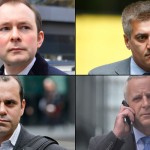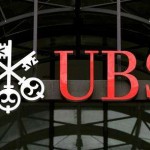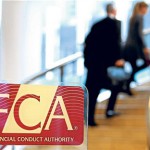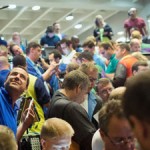The Libor trials: Where we are now
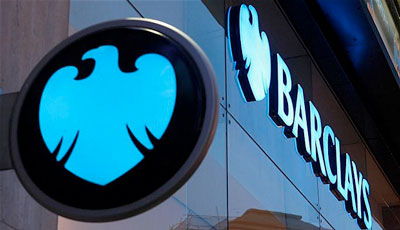
Barclays sent shockwaves through the City when, in July 2012, it was fined nearly £300m by British and US regulators for its role in the Libor-rigging scandal. Days later, then chief executive Bob Diamond handed in his notice.
The early settlement qualified the bank for a 30 per cent discount on its fine from the Financial Services Authority (FSA), the City watchdog at the time. In stumping up before its peers, the bank clearly felt it had done the right thing.
But nearly five years on, Libor still casts a long shadow over the bank.
Earlier this week, the BBC unveiled a 2008 recording between two then-Barclays employees, suggesting the Bank of England had pressured the lender to lower its Libor submissions in the wake of the financial crisis. A number of influential MPs have since told City A.M. they want the reports investigated urgently.
And last week, two former Barclays traders – Stylianos Contogoulas and Ryan Reich – were acquitted of accusations of Libor rigging following a trial lasting over a month.
Contogoulas and Reich were originally tried alongside three other former Barclays employees – ex-submitter Jonathan Mathew and two fellow former traders, Alex Pabon and Jay Merchant – in 2016.
While the jury that time around decided the other three were guilty, they could not make up their minds on Contogoulas and Reich, so the case was sent for a retrial this year.
The UK’s fraud squad initially kicked off its Libor investigation in July 2012, shortly after the FSA handed out its fine to Barclays. But when it came to chasing the individuals it deemed responsible, the Serious Fraud Office (SFO) had a problem.
While most people felt Libor-rigging was morally unforgivable, particularly given the sheer value and number of the contracts it underpinned, there wasn’t anything in the statute books addressing the practice head on.
Offences contained in the Financial Services Act 2012 can now be used to slap people with a seven-year maximum sentence, but the SFO was investigating events that had taken place more than five years before that act was passed into law.
Nonetheless, the fraud squad found another option – charge the traders with conspiracy to defraud, which carries a maximum sentence of 10 years.
To successfully secure a conviction under this offence, the prosecutors essentially would have to prove that not only did the bankers conspire together in a bid to rig the rate but also that they were dishonest in their actions.
The conspiracy – that bankers had communicated in an attempt to move the rate – was arguably the easier part to prove. The fraud squad had already secured a string of emails, which were produced in the course of the trial, showing how traders at the bank frequently chatted about what rate would better benefit their book, and then told the cash desk what Libor submission they would like for the day. The FSA also scrutinised 111 requests from traders regarding submissions covering a 20-month period when it came making the decision about its fine.
It was the second part – proving traders had been dishonest in their actions – which was more likely to create a problem for the prosecutors.
In the retrial, the jury heard bundles of evidence suggesting Libor was a botched product in more ways than one. The defence argued even the expert witnesses had failed on occasion to provide a coherent explanation of what was allowed when setting the rate.
Execs from Barclays also explained how training on the benchmark was all but non-existent.
Harry Harrison, who currently heads up Barclays’ non-core unit, described the Libor requests from traders for rates from submitters as “inappropriate”, but also noted: “There was no formal training about what you could and could not say.”
Oversight from the British Bankers’ Association (BBA), the trade body once in charge of the running of the rate, did not seem particularly forthcoming either. Former BBA executive Sally Scutt told the court the organisation had been made aware some banks might have been bending the rules but confessed there was an “inherent conflict of interest” because the committee responsible for governing Libor was comprised of representatives from banks.
That’s not to say the fraud squad didn’t use harsh words about Contogoulas’ and Reich’s moral compass during the course of the trial.
In her opening speech, Emma Deacon, barrister for the SFO, told the court “honesty and integrity were matters which were entirely expendable” for the duo.
Even though it’s not possible to know what was discussed between members of the jury, the acquittals of the pair point towards them favouring the defence lawyer’s versions of honesty on the trading floor at Barclays as it stood 12 or so years ago.
The Libor tale is far from confined to what has played out over the last six or so weeks. Since 2012, the FSA, and later the Financial Conduct Authority have dished out hundreds of millions of pounds’ worth of fines to various financial companies for manipulating the benchmark rate.
Meanwhile, it is not only former Barclays bankers who have been jailed off the back of the Libor scandal and the SFO’s still ongoing investigation. Former UBS and Citigroup trader Tom Hayes was jailed for 14 years in 2015, although this was reduced to 11 by the Court of Appeal.
Hayes recently launched an appeal to the Criminal Cases Review Commission, an independent body which considers whether failed appeals should be sent back to the courts to reconsider fresh evidence. His legal team are arguing his Asperger’s was not properly taken into account when assessing his understanding of dishonesty.
One of the Barclays bankers jailed after the first trial, Pabon, has recently returned home to the US.
He wrote upon arriving home: “I held my wife, who cried in my arms from relief and exhaustion and the pain of all we have endured throughout this ordeal.
“I am relieved to be back home with my family and friends.”
Source: CITYA.M.










